Doing business
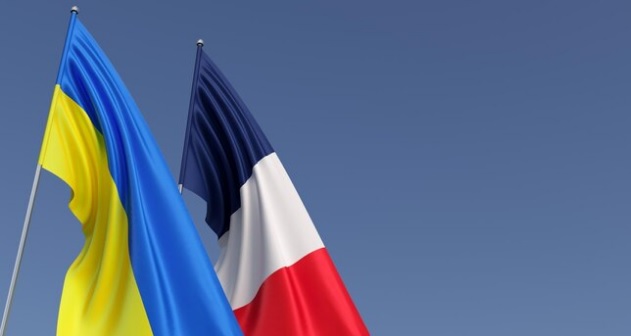
France is one of the major allies of Ukraine, which has supported our country at the beginning of the full-scale invasion of the russian occupiers. In the third year of the great war of Ukraine against the aggressor, the French Republic has been providing political, financial, humanitarian and military support to Ukraine – individually and through international cooperation within the EU, NATO, the UN and in other formats. France highly appreciates the determination and courage of the Ukrainian people and the Armed Forces of Ukraine and recognises their significant contribution to the security of the European continent and beyond. The French Government will also continue to provide assistance in military equipment, cooperation between the defence industries, training and intelligence.
On February 16, President of Ukraine Volodymyr Zelenskyy and President of France Emmanuel Macron signed a bilateral agreement on security cooperation within the Group of Seven framework declaration in Vilnius on July 12, 2023. The agreement will be valid for ten years. In this document, France reaffirms its unwavering commitment to the strategic goal of a free, independent, democratic and sovereign Ukraine within its internationally recognised borders since 1991, able to defend itself now and prevent any possible aggression in the future.
Over more than two years of full-scale war, France has provided Ukraine with assistance for a total of €3.8 billion, including €2.6 billion in military equipment and materials adapted to the conditions in which the AFU operates and €1.2 billion donated by the country to the European Peace Foundation (EFF). The list of equipment donated by France to Ukraine includes firearms, personal protective equipment, air defence systems, artillery, armoured vehicles, seagoing vessels, trucks, drones, aviation fuel and much more. In addition, about 10,000 Ukrainian defenders were trained in France and Poland with the support of Paris. In 2024, the training programme for the Armed Forces of Ukraine will be expanded.
Among the air defence systems that France has identified as a priority for supporting Ukraine were the delivery of two Crotale NG systems, six Mistral MANPADS, and one Franco-Italian SAMP/T air defence system.
Another priority area in which the French authorities decided to support Ukraine in the war against russia is artillery. In 2023, 30 Caesar self-propelled artillery systems, six TRF1 howitzers, four multiple launch rocket systems, and 10 120-mm mortars were transferred to the AFU. The howitzers also were supplied with 30,000 shells.
The French government has supported the Czech initiative to purchase 800,000 artillery shells for Ukraine and is actively participating in it, emphasising that it will provide €3 billion in military assistance to Ukraine through 2024, including artillery shells, guns, effective Cesar systems, and additional air defence reinforcement.
France has ordered 400 drones for Ukraine from Delair, a drone manufacturer. The equipment is expected to arrive by early summer. Delair develops drones for border control, intelligence and special operations forces. In addition, the French army has chosen this company to produce attack drones.
In addition to military assistance, the French Republic provides civilian assistance to Ukraine, including financial, humanitarian and emergency support. In particular, France has donated two mobile DNA laboratories to Ukraine to strengthen Ukraine’s ability to investigate war crimes. It also delivered over 2,900 tonnes of humanitarian aid and over 200 generators to Ukraine.
Speaking about economic assistance to Ukraine over the past year, the Ministry of Foreign Affairs of France noted that it included direct budgetary loans worth €400 million, support for projects worth €1.2 billion, a declaration of patronage over the reconstruction of Chernihiv region, mobilisation of more than 700 companies to participate in the reconstruction, and participation in the work of the interagency donor coordination platform.
In addition, two large-scale conferences in support of Ukraine took place in Paris in December. The first one was called “Solidarity with the Ukrainian people” and was attended by about 70 leaders from 46 EU countries and 24 international organisations, including the UN, and took place at the Elysee Palace. The conference was called a “civilian Ramstein”. As a result, it was announced that “more than €1 billion worth of commitments were made to provide concrete and urgent support to Ukraine (primarily to help the country survive the winter in the face of russian bombardment of civilian infrastructure) and the establishment of the Paris Mechanism for Aid Coordination”.
The second event, the French-Ukrainian Conference on Sustainability and Development, was attended by more than 700 French companies. Its main goal was to secure French companies’ involvement in the reconstruction and post-war development of Ukraine.
The current level of economic relations between Dnipropetrovsk region and France may indicate a significant potential for growth in investment activity. There are 10 French companies operating in the region, which have invested $13.1 million in the region’s economy.
France remains an important commercial partner of Dnipropetrovsk region. The high level of partnerships is evidenced by the bilateral analysis of external activities. French companies are most interested in ferrous metals and products made thereof, fruits and oilseeds, parts of railway equipment, etc. According to the results of 2023, the volume of exports of goods from Dnipropetrovsk oblast amounted to $38 million and decreased by 46% compared to 2022.
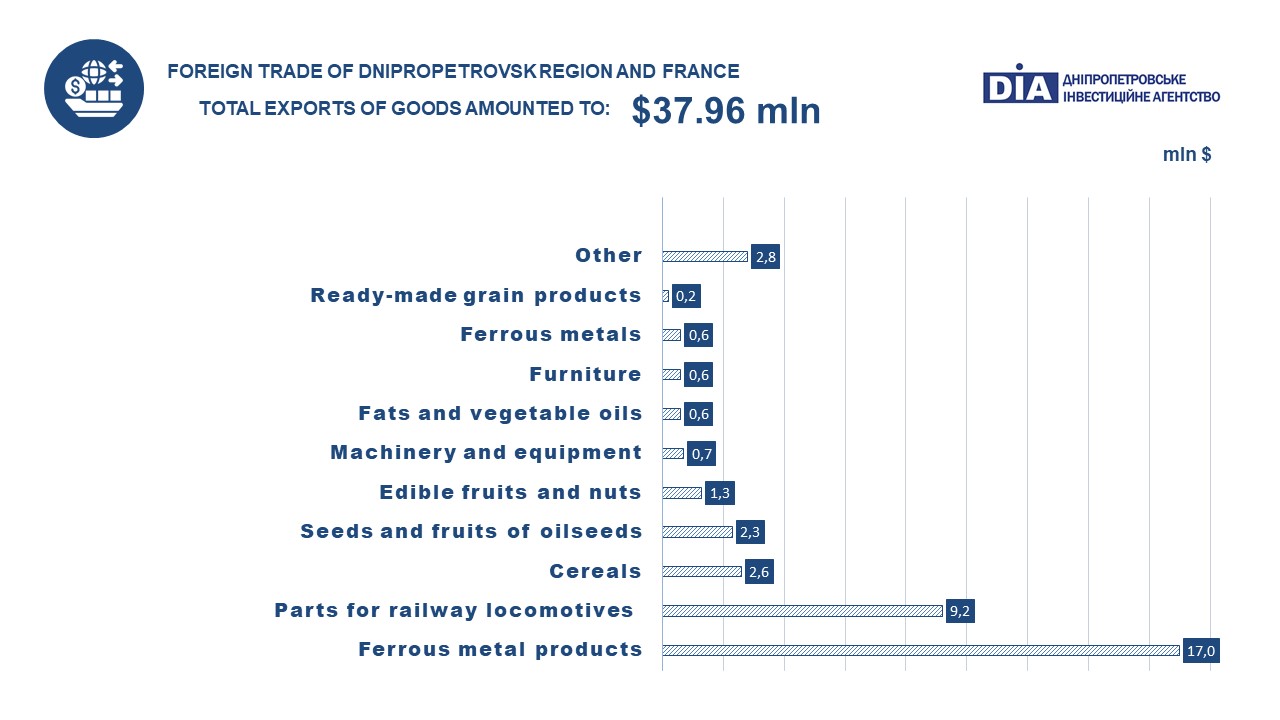
63 enterprises in Dnipropetrovsk region exported their products to the French market, including metallurgical, machine-building, processing and agricultural companies.
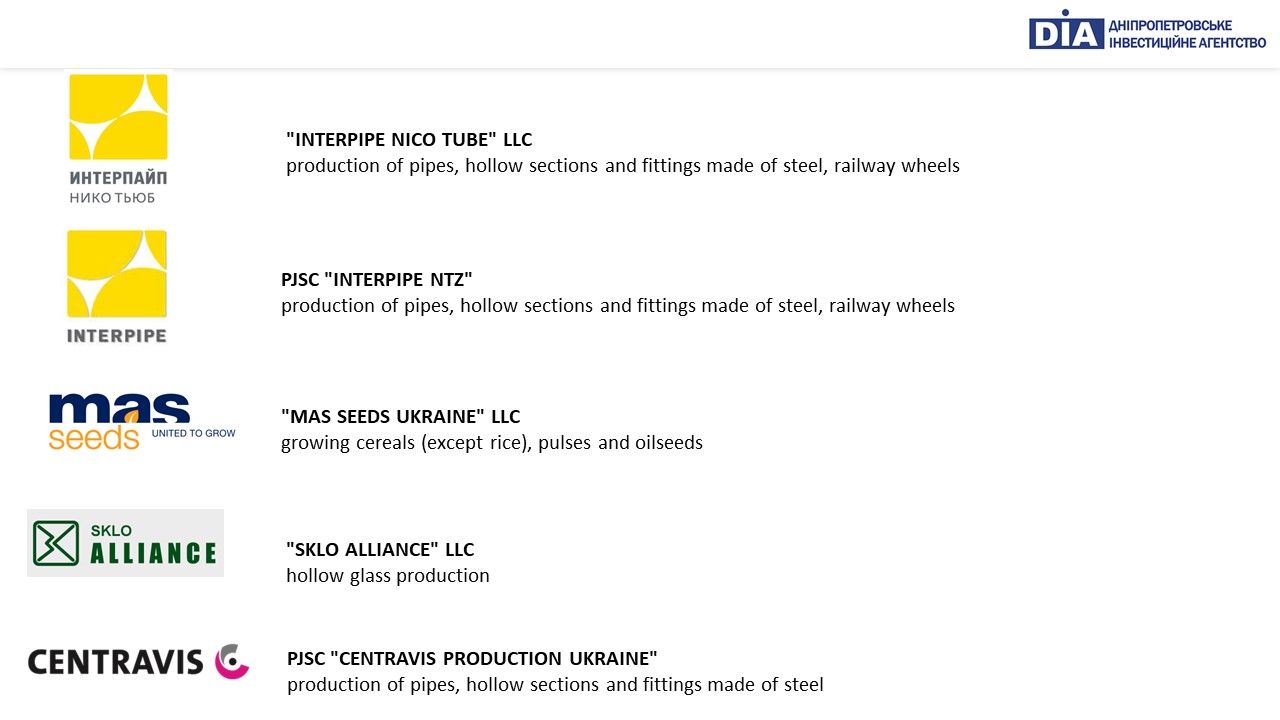
Imports of goods from France to Dnipropetrovsk region increased by 53.7% compared to 2022 and amounted to $129.1 million.
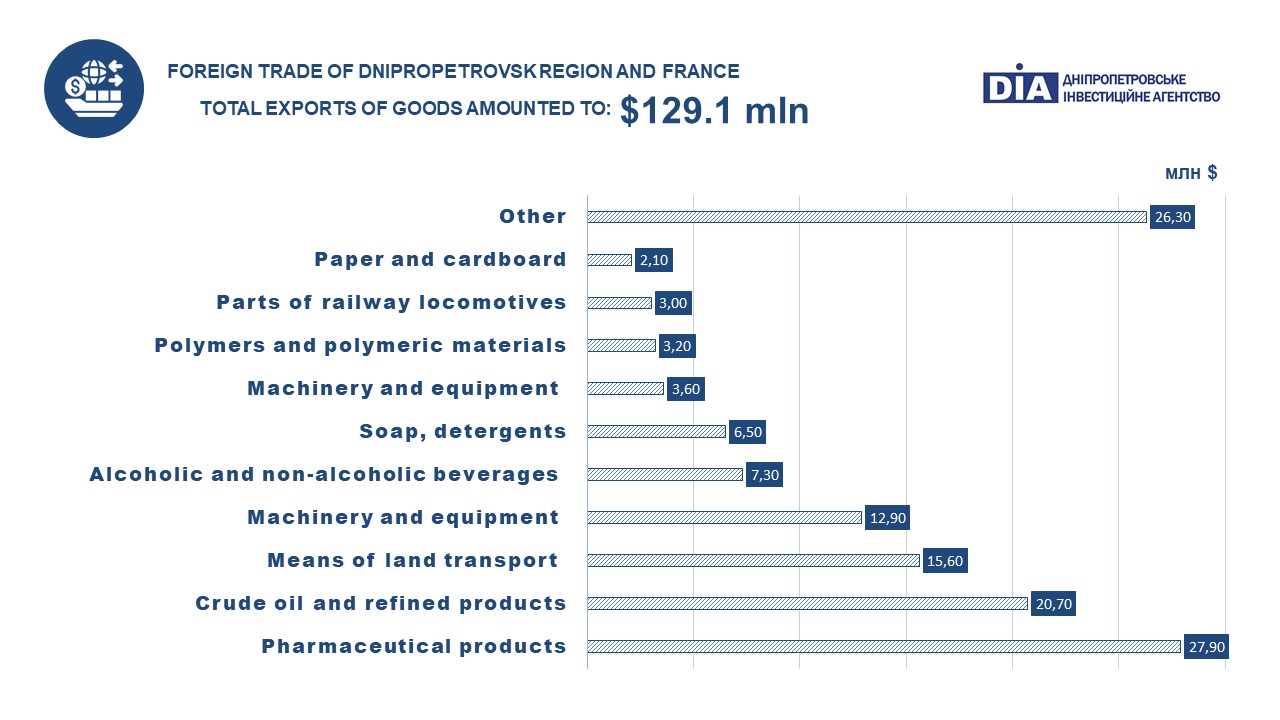
There were 242 importing companies in the region that bought pharmaceuticals, oil and oil products, land transport, machinery and equipment, etc.
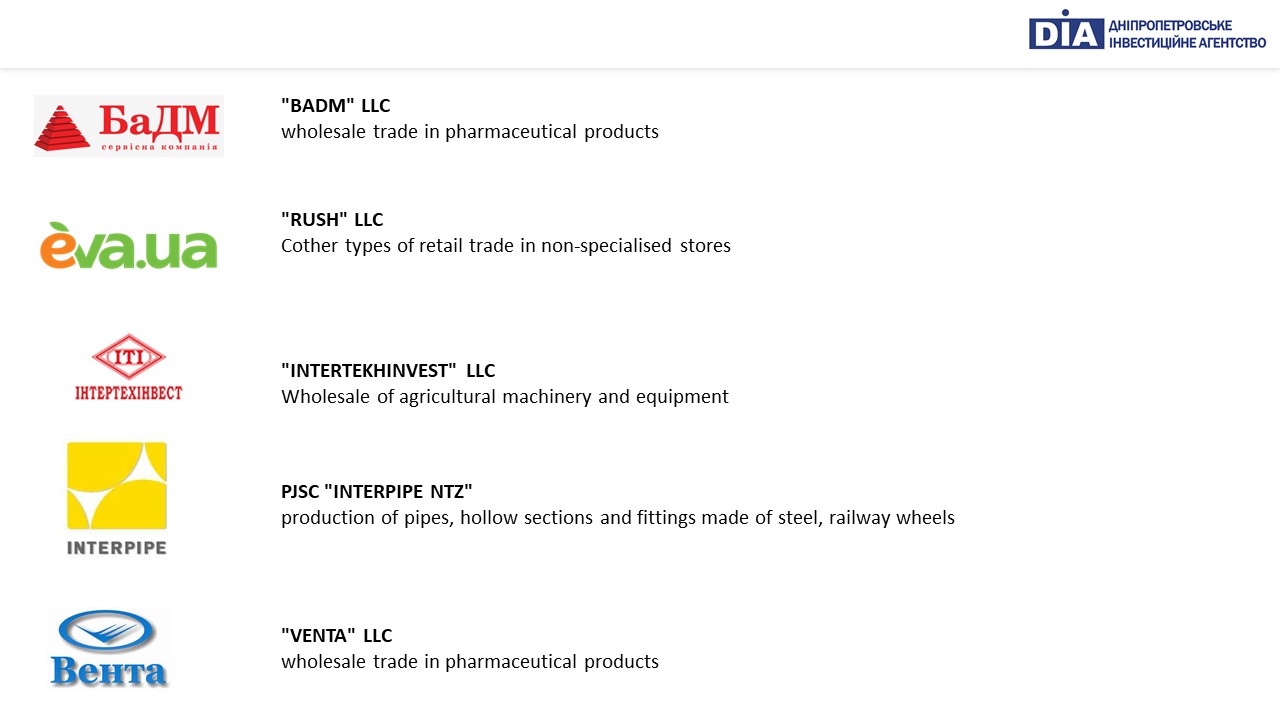
Import operations were mainly carried out by processing industry enterprises, trade and pharmaceutical companies.
Source: information for the article was taken from open online sources